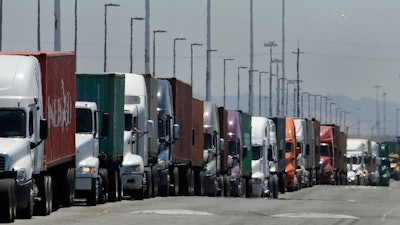
WASHINGTON (AP) — The Federal Reserve said Wednesday the U.S. economy is still growing steadily and most businesses are optimistic, even in the face of President Trump's trade wars.
In The Fed's latest report on economic conditions nationwide, hiring increased modestly in most industries, though manufacturing employment declined in some areas. The survey covers mid-July to late-August.
The report, known as the beige book, consists of anecdotal accounts from business executives in the Fed's 12 regional districts. They will be considered at its next meeting Sept. 17-18, when economists expect Fed officials to cut short-term interest rates again.
Companies in many districts, particularly in manufacturing, say that the uncertainty created by the tariffs has made it harder for them to expand or plan ahead.
Most drivers of the economy were mixed, the report found. Home sales were limited in most districts because few homes are for sale, even with low interest rates. Consumer spending was uneven, though auto sales grew in most districts. Manufacturing activity declined nationwide compared with the last report.
Companies are seeing only modest price increases for their raw materials and parts, the report said. U.S. tariffs on steel and about half of Chinese imports have raised costs for some companies, but others expect the impact wouldn't be felt for a few more months.
Some companies were able to pass on the higher costs from the tariffs, but manufacturers said they had "limited ability" to raise prices.
Farmers reported a more pessimistic outlook. They are struggling with heavy rains earlier this year and other bad weather, low prices for agricultural goods, and sharply diminished export markets because of trade tensions. China, for example, once a huge market for U.S. soybeans, has largely cut off its market by imposing retaliatory tariffs on U.S. soybean imports.
Some parts of the country are reporting negative outlooks. Slightly more business contacts in the St. Louis district expect the economy will worsen for the rest of this year compared to last year, than expect it to get better or remain the same.






















